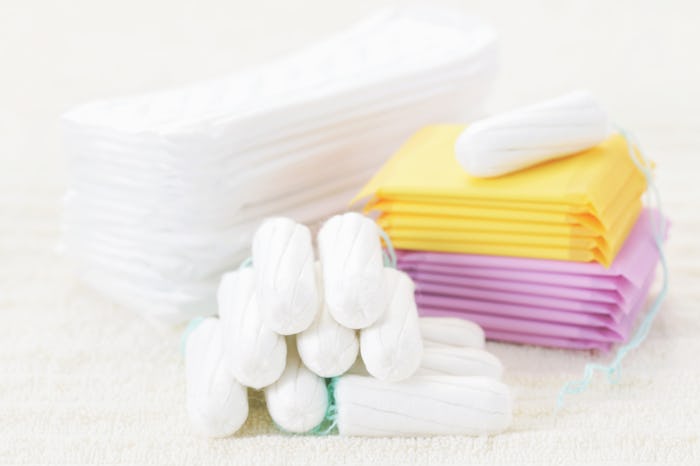Life

How Your Period Changes After Having A Baby
Babies change everything, including your menstrual cycle. Although pregnancy does give you a well-deserved break from Aunt Flo, the period returns at some point. So how does your period change after having a baby? The new cycle may be a different experience for many women.
First off, the hormonal changes accompanying pregnancy are no joke. For instance, a pregnant woman produces more estrogen during her pregnancy than the rest of her non-pregnant life combined, according to Healthline, and odds are, your body won't clear out excess estrogen the minute you give birth. So it's understandable if the process is out of whack for a few cycles. For instance, when your period returns after you give birth, its duration may be longer or shorter than normal, according to the website for Parents. It might also be more or less painful than before. The changes can vary from person to person, and the same woman could experience different effects from subsequent pregnancies. There is no easy way to predict these changes, so you get to wait and see how things play out.
Further more, after giving birth, your period may affect your mood in a new way. According to Health, some postpartum women experience differences in their PMS symptoms, or mood changes. This feels unfair, because no one should deal with PMS and a cranky toddler at the same time. Hey mother nature, can you chill for a second?
In addition to the massive hormonal changes, your prior methods of birth control can play into your period's return. Lighter periods are a common benefit of hormonal contraceptives, as noted by the website for Today's Parent. So if you've been on hormonal birth control for years, then the return to your natural cycle, in all its terrible glory, can come as a shock.
Granted, taking care of your new baby will push period concerns to the back of your mind. When it does return though, your cycle's duration, painfulness, and flow may be different, and that's normal. If anything about your period gives you serious concern, then a visit to your doctor is a smart idea.